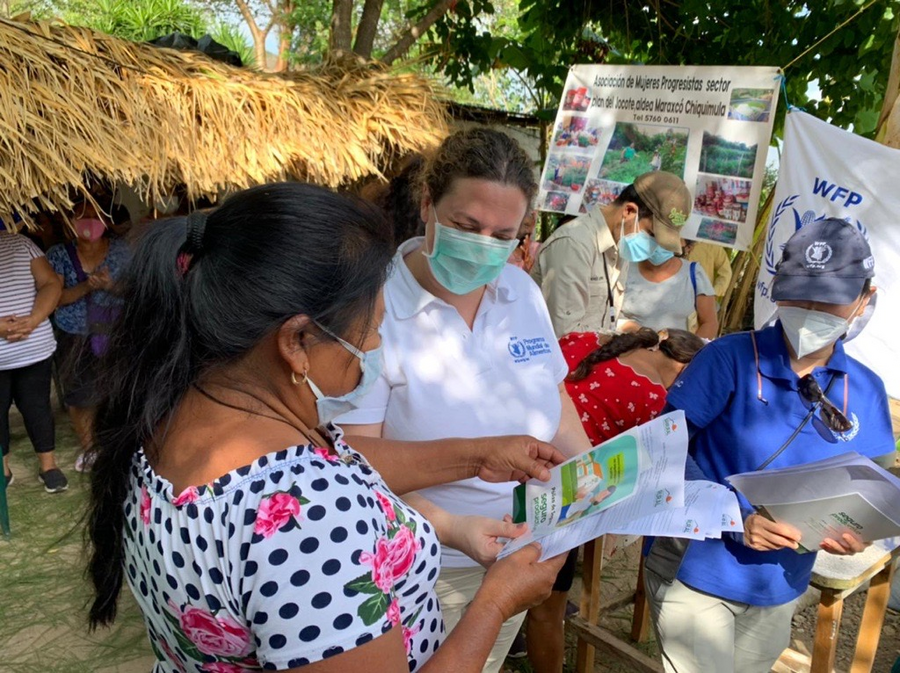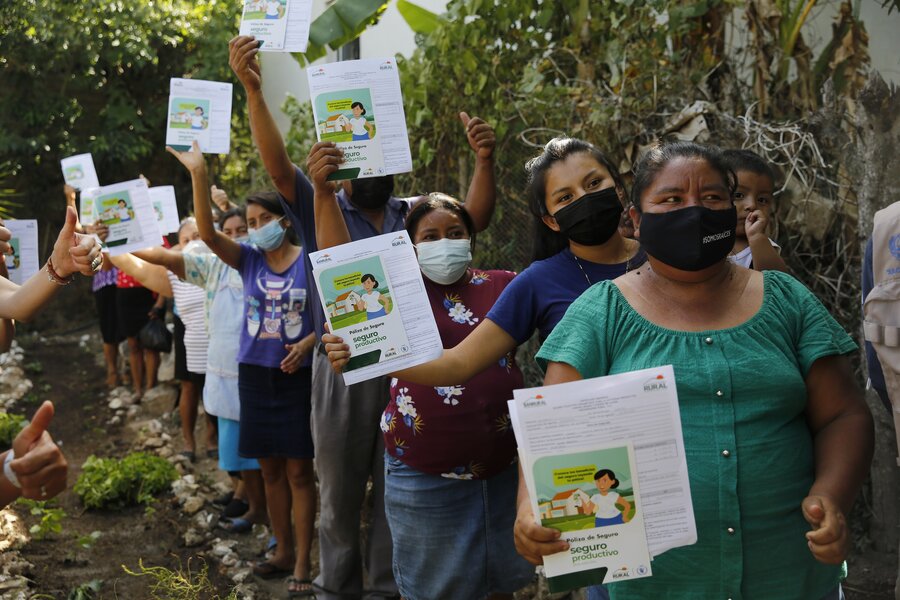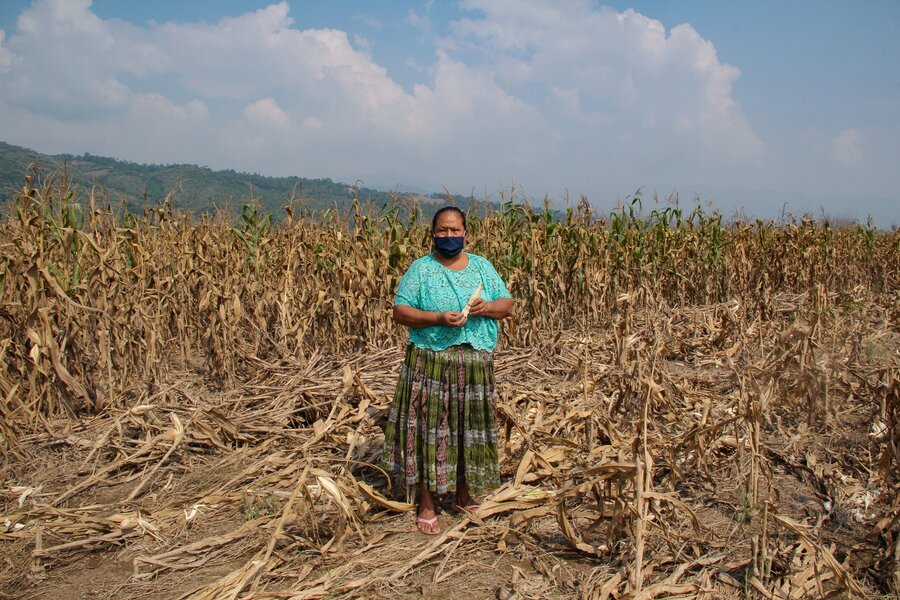Indigenous women in Guatemala are insured against drought and heavy rains

“After the heavy rains wiped out all our crops, we only had enough to survive for a few days,” says Herlinda Caal, a smallholder farmer from a Q’uqechi’ community. Q’eqechi’s are one of the Mayan Indigenous peoples living in Alta Verapaz, north-central Guatemala.
With poverty at 83 percent and extreme poverty at 53 percent, Alta Verapaz was the country’s poorest department according to a 2014 survey by the national statistics institute.
Across Latin America and the Caribbean, millions of people are vulnerable to frequent and extreme climate-related disasters. Access to finance is essential in helping them to offset the worst effects of these. In Guatemala, the most notable recent examples were hurricanes Eta and Iota, which struck in November 2000, causing landslides and floods that claimed lives, destroyed property and crops, and displaced thousands of people.
For Indigenous peoples, the challenge is even greater. Guatemala has one of the largest Indigenous populations in Latin America, comprising 23 groups. Gender inequality, especially for Indigenous women, is worsened by unequal access to land, lack of economic and social resources, and low representation in government decision-making forums.

An innovative insurance programme, run by the World Food Programme (WFP) in partnership with insurance company Aseguradora Rural, enables farmers and entrepreneurs to become more resilient in the face of the climate crisis and the risk of food insecurity.
Herlinda is one of 12 women in her cooperative, which is known as “Corazón de Maíz”, or “Corn Heart”, producing maize as well as raising poultry and pigs. All the women are Indigenous. The scheme mitigates against interruptions to their business, with an annual fee equivalent to US$23 guaranteeing payouts of up to around US$309 in case of drought or rains.
Alta Verapaz is part of the Dry Corridor in Guatemala. This resilience-building project aim to improve food and nutrition security of the most vulnerable populations, in this department as well as Zacapa, El Progreso and Chiquimula.

Ultimately, financial risk-management tools like this mean people who do not have access to traditional financial services can put food on the table for their families, when their sources of income fail.
“This insurance is a great benefit,” says Herlinda. “This way we can move forward and have something for our children to eat.”
This is the first year of the pilot project, during which WFP will cover the insurance premium for participating cooperatives. From next year, the premiums will be paid by cooperative members.
